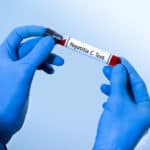Fast Food Likely to Accelerate Hepatitis C
New research from Sweden confirms that eating fast food can cause substantial liver damage. Luckily, the liver is one of our few organs capable of regenerating new, healthy cells. Thus, the injury inflicted from occasionally ordering dinner from a drive-through window can be reversed with a focused effort. Unfortunately, those battling Hepatitis C have a diminished ability to regenerate new liver cells and therefore have a harder time reversing liver damage. This means that the liver cell death incurred from eating the high-fat meals typical of fast food restaurants may be more detrimental to those already living with a chronic liver disease such as Hepatitis C.
The Hepatitis C virus (HCV) is one of the most common causes of chronic liver disease in the United States. Accounting for about 15 percent of acute viral hepatitis, 60 to 70 percent of chronic hepatitis and up to 50 percent of cirrhosis, end-stage liver disease and liver cancer, experts estimate that 4.1 million Americans are currently infected with HCV. While many more people live with HCV than die from it, the distinguishing factor between the two is learning how to prevent incurring further liver damage.
The HCV Disadvantage
The progression of liver disease is marked by a greater proportion of liver cell death than the creation of new, healthy liver cells. Due to a buildup of localized scar tissue, the following cascade of events demonstrates why those with HCV are prone to a worsening of their condition:
- The Hepatitis C virus infects and kills liver cells.
- In response to liver cell death, the body initiates an immune response, which causes inflammation.
- In an attempt to limit the spread of infection, the immune system lays down collagen fibers between liver cells. These fibers are the building blocks of scar tissue.
- Normally, as an infection or injury resolves, the collagen matrix enclosing the injury is dissolved and allows the tissue to return to normal. However, this web of collagen in people with chronic HCV grows more rapidly than it can dissolve.
- As more collagen accumulates, the resulting scar tissue restricts living liver cells from access to nutrients and oxygen-rich blood.
- The restricted access to blood causes even more quarantined liver cells to die. As such, HCV progressively scars the liver.
Since people living with HCV have this consistent battle being waged in their liver, they are more vulnerable to toxins that could damage this organ.
The Danger of Fast Food
Many things we breathe, ingest, swallow or otherwise absorb into our bodies pose a threat to the liver. A universally acknowledged cause of chronic liver disease, drinking alcohol is one of the most obvious ways to poison a liver. While most people might not categorize their lunch as toxic, millions of Americans are damaging their liver by eating fast food. A small Swedish study published in the February 2008 edition of the journal Gut found that even a brief fast-food binge combined with too little exercise can induce liver damage.
In this study, 18 slim, healthy participants stuck to a fast food diet, mostly consuming of hamburger meals from popular chains twice a day for four weeks while refraining from exercise. At the end of the experiment, participants not only gained an average of 16 pounds, but blood tests also showed evidence that those eating fast food incurred liver damage.
In the Swedish study, those gorging on fast food meals showed a dramatic increase in alanine aminotransferases (ALT) levels over a very short period of time. An enzyme produced in liver cells, ALT leaks into the bloodstream as liver cells are damaged. A result of liver cell damage, ALT elevations can be caused by any liver disease, hepatic inflammation or toxin.
Previous research has shown that a diet high in fat and calories, the hallmark of greasy, fast food, puts people at greater risk for obesity and type 2 diabetes, cardiovascular disease and heart failure. However, this Swedish study shows that doubling caloric intake without adding exercise also puts hepatic health in jeopardy. When excessive calories and fat overloads the liver’s ability to filter the blood, fat builds up in the liver cells and leads to liver damage. Considering that a majority of the study participants developed pathological ALT levels within just one week after eating fast food, this negative impact can occur relatively quickly.
Most people with HCV are aware that drinking alcohol causes liver cell death and can accelerate the severity of their liver disease. However, now their physicians must relay that alcohol is not the only thing they must navigate away from. Since eating a large quantity of high-fat foods (even for a short time period) while refraining from physical activity can damage the liver, people with HCV must avoid this combination. Since harboring the Hepatitis C virus makes recovery from liver damage a great challenge, hepatologists across the globe will be putting greater emphasis on sticking to a healthy, low-fat diet and adhering to an active lifestyle.
References:
http://abcnews.go.com, Fast Food: The Fast Track to Organ Damage, Radha Chitale, ABC News Internet Ventures, February 2008.
http://digestive.niddk.nih.gov, Chronic Hepatitis C: Chronic Disease Management, National Digestive Clearinghouse, 2008.
Diseases International http://en.wikipedia.org, Super Size Me, Wikimedia Foundatin Inc., 2008.
Kechagias, S, et al., Fast food based hyper-alimentation can induce rapid and profound elevation of serum alanine aminotransferase in healthy subjects, Gut, February 2008.
www.medpagetoday.com, Fast-Food Bender Can Convert to Liver Damage Swiftly, MedPage Today LLC, 2008.







